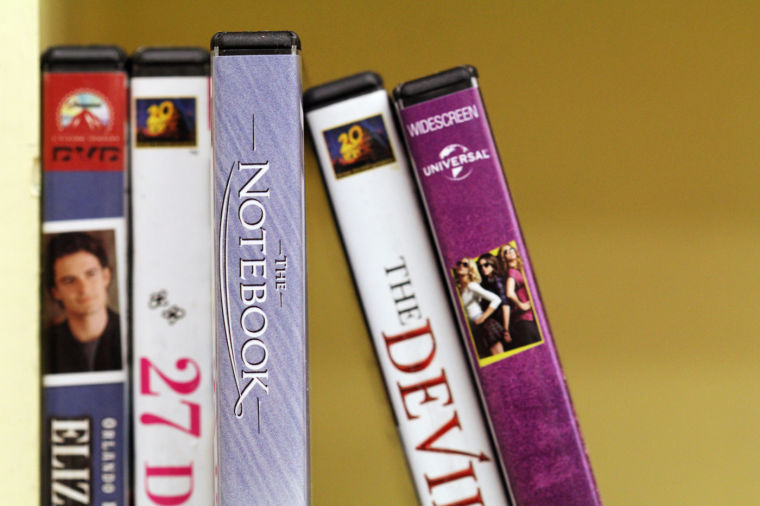P.S. I Don’t Love You
April 14, 2014
The way “The Notebook” begins mirrors the way many abusive relationships end.
In opening scenes of the beloved film, Noah, the male protagonist, pursues Allie despite her initial but persistent refusal. He even goes as far as to risk his life and threaten suicide for a date with her.
Despite his coercive and disrespectful behavior, Noah receives his reward. He wins his date with the object of his desire and a lusty relationship ensues.
Throughout the film, the characters flaunt their love for one another by committing acts of infidelity, occasionally acting out physical violence, and engaging in emotional manipulation.
The message behind “The Notebook” and many highly acclaimed movies like it suggests that abusive behavior demonstrates romantic dedication and such acts are committed out of “love.” Such films romanticize the prevalent and dangerous symptoms of intimate partner violence.
Despite the negative message, such movies dominate a large portion of the market. Romantic comedies and “chick flicks” grossed more than $192 million in 2013, according to Nash Information Services.
Film provides the viewers with an escape into a fantasy. The popularity of romantic comedies and dramas suggests a demand for the dangerously idealized relationships.
Such deviated portrayals of romantic unions set the ground for lopsided relationships, abusive situations, and broken hearts. When film lauds bad behavior as the height of the romantic ideal, we foster a culture of abuse.
The prevalence of intimate partner violence within our society cannot be denied.
On average in the United States 24 people per minute experience some form of intimate partner violence, according to a 2012 report from the Centers for Disease Control and Prevention (CDC).
Additionally, nearly half of both men and women have experienced some form of psychological aggression from their intimate partner, according to the National Intimate Partner and Sexual Violence Survey.
The frequency at which domestic violence occurs indicates its integral nature within our communities. Violence and abuse in the context of romantic relationships are not isolated incidences or rare occurrences.
Considering the significance of film in coloring the fabric of our cultural expectations, faulty depictions of domestic abuse and romance play a role in how both men and women think about relationships. When abusive behavior is praised or glorified, it becomes an expectation.
According to the cultivation theory first proposed by George Gerbner of University of Pennsylvania, television and film carries the responsibility for molding an individual’s perception on social reality. With this in mind, the deleterious messages portrayed in romance films may propagate detrimental effects in real-life relationships.
The persisting culture of abuse and unequal relationships emphasizes the deep rooted nature of the problem fueled by popularized misconceptions and hard-dying myths.
Although many factors influence the culture surrounding intimate partner violence, the way movie-media romanticizes abuse cannot be removed from the equation. While the film provides a venue for daydream and escapism, fantasy should not be focused around unhealthy situations.
For the sake of love, we ought to reconsider how we want to view relationships.
– Michelle Chan is a sophomore animal science major from Phoenix, Ariz. She can be contacted at 335-2290 or by [email protected]. The opinions expressed in this column are not necessarily those of the staff of The Daily Evergreen or those of Student Publications.





















